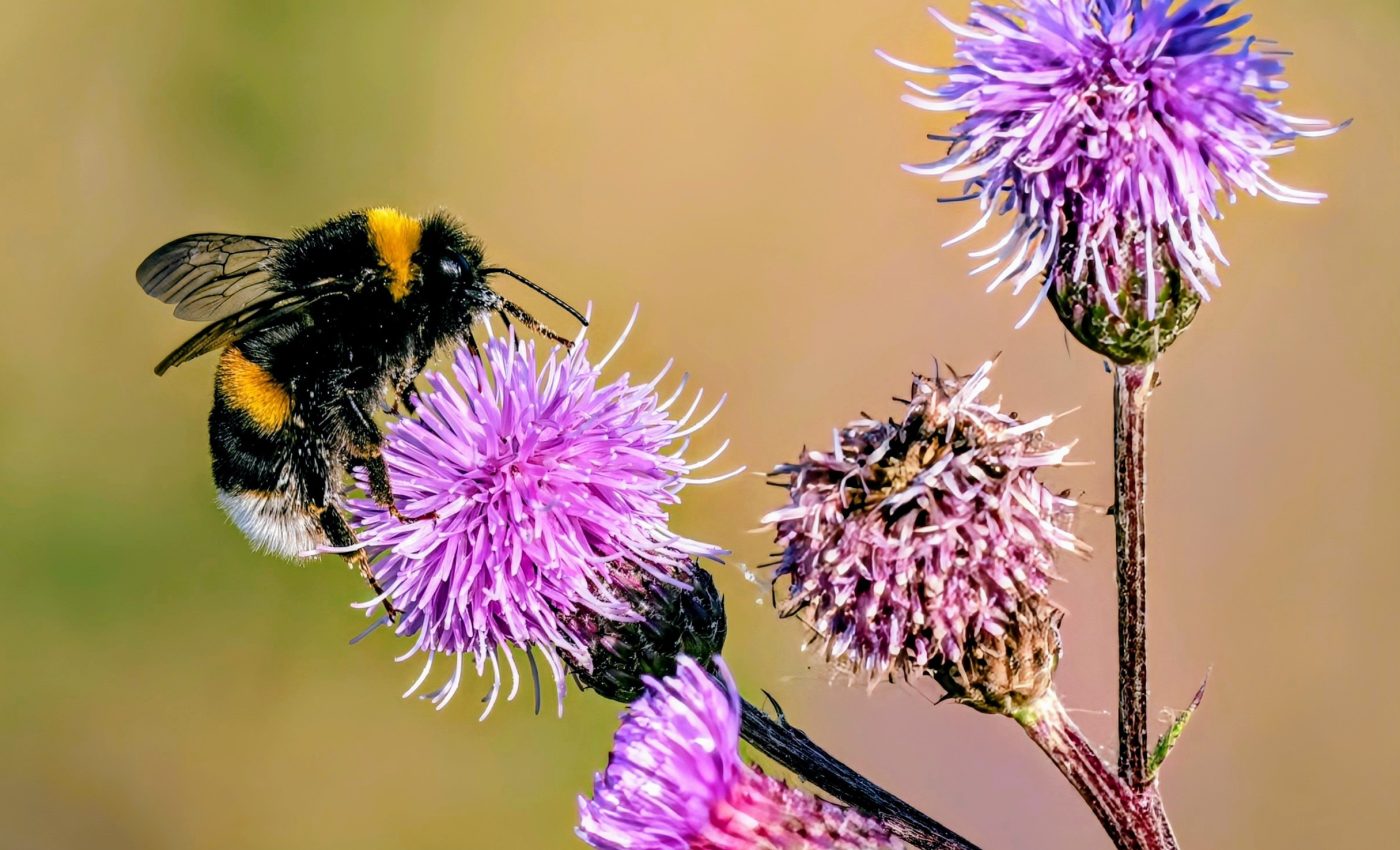
Stressed out bees get depressed and make bad decisions
On most sunny days, the sight of bees buzzing around flowers brightens our day. They fly around with a certain zest, full of purpose.
But what if these hardworking bees can feel the weight of the world like we do? Fascinating new research reveals that bees experience stress, and it drives them to make pessimistic choices.
Stress and its influence on bees
Scientists at Newcastle University have discovered that bees, just like us humans, exhibit emotion-like responses to stressful events.
What does this mean? Well, the research findings tell us that when stressed, bees lower their expectations of rewards, which eventually influences how they approach pollination.
So, how did the researchers find this out? The team trained the bees to decipher whether a specific color signaled a good or bad outcome.
The bees learned to associate different colors with different outcomes. One color pointed to a location full of sweet rewards, while another led them to a location with fewer rewards.
Stress-induced pessimism in bees
The experiment further divided the bees into different groups where some experienced a simulated predatory attack, a cause of stress, while others did not. The results were intriguing
“Our study shows that bees are more pessimistic after stress as their behavior suggests that they do not expect to get rewards,” explained study co-author Dr. Vivek Nityananda.
“Emotions are complex states and in humans involve a subjective understanding of what you are feeling. We might never know if bees feel something similar, however, what this research can say is that bees have similar responses when they are stressed and make pessimistic choices.
“The best explanation for their behavior is that they expect high rewards to be less likely and exhibit traits of pessimistic people.”
Implications of stressed bees
Why does this matter? Well, it matters a lot, especially for our ecosystem. Stress can impact how bees approach flowers and pollinate plants, and their ability to access high-quality rewards.
So, this stress-induced shift in behavior can potentially affect the entire pollination process.
On the brighter side, this research broadens our understanding of emotions, as we found similar traits in an organism as different as an insect.
“Our research suggests that, like other animals including humans, bees may experience emotion-like states when stressed, as demonstrated by a clear shift towards pessimism,” noted Dr. Olga Procenko, who led this research at Newcastle University and is currently a researcher at the University of Birmingham.
Future research directions
The fascinating findings of this study certainly pave the way for further exploration. The experts still need to investigate how this phenomenon may affect the pollination of flowers and plants.
“We need to figure out how bees evaluate rewards when stressed and whether these states in bees show other properties we see in emotions. We also need to investigate the neural mechanisms involved and see if bees in the wild show similar responses,” noted Dr. Nityananda.
Certainly, the road to understanding our buzzing friends better is filled with many more questions to answer. Perhaps in unraveling the mystery of the bees’ world, we might also gain a better understanding of our own.
Broader implications of the study
Understanding the emotional states of bees offers profound insights not just on a theoretical level but also in practical applications affecting agriculture and ecology.
Bees play a crucial role in pollinating approximately 80% of flowering plants and a staggering one-third of the human food supply is dependent on bee pollination.
Recognizing how stress influences their foraging patterns could lead to improved strategies for managing bee populations and mitigating the adverse effects of environmental stressors.
Enhanced satellite monitoring of bee habitats, development of stress-reducing habitats, and focused conservation efforts could be devised to maintain vital bee populations, thereby ensuring the stability and sustainability of many ecosystems.
Emotional capacities of insects
The findings from Newcastle University serve as a springboard for further studies, encouraging scientists to explore the emotional capacities of insects.
The next phase of research could focus on the long-term effects of stress on bee populations and analyze whether similar emotional responses are evident in other arthropods.
Additionally, interdisciplinary approaches involving neuroscience, ethology, and environmental science might uncover the neural pathways and physiological mechanisms driving these emotion-like states in bees.
By expanding research to include varied environmental conditions, scientists can develop a comprehensive understanding of how these emotion-like states might influence ecological interactions, ultimately helping to devise better conservation strategies to protect these vital pollinators in an increasingly changing world.
The study is published in the journal Proceedings of the Royal Society B Biological Sciences.
—–
Like what you read? Subscribe to our newsletter for engaging articles, exclusive content, and the latest updates.
Check us out on EarthSnap, a free app brought to you by Eric Ralls and Earth.com.
—–













